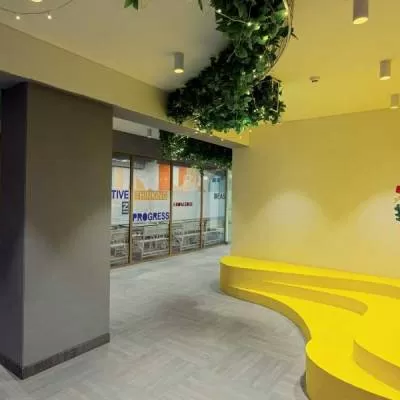- Home
- Real Estate
- What will it take to develop the rental housing market in India?
What will it take to develop the rental housing market in India?
Urbanisation in India, which stands at 30 per cent of the total population as per the 2011 census, is taking place at a fast pace and is likely to cross 40 per cent by 2030. However, according to 2012 estimates of the Technical Group on Urban Housing Shortage, the national housing shortage was around 19 million houses, with a significant requirement for lower-income households.
The rental share of urban housing stock in India was significant until the 1980s. However, as residential real-estate markets expanded and houses became prized as an investment alternative and a symbol of affluence, Indians began purchasing houses. As a result, the rental share declined progressively.
The development of the rental housing market in India is imperative, as people across the income spectrum can easily consider leasing a house. In fact, for lower-income households, leasing a house is a better option (than buying) as it suits their erratic income streams and does not involve long-term financial commitments. In addition, Millennials, with higher disposable incomes living in nuclear families and aspiring to be globetrotters, prefer to reside in rented apartments to be ‘free’ of any commitments.
To develop the rental housing market in India, we need significant government initiatives and policy support. Alike a few housing schemes driven by the development authorities of some state governments, we need a real big-bang proposal for a government-sponsored rental housing programme. In addition, arrangements for private companies to build and manage rental housing projects to avail tax exemptions and other benefits will significantly boost participation in the rental housing market. Once we gear up towards this, the organised and government-driven rental housing market in India will grow significantly, similar to the development noted in China, Singapore, the US and the UAE.
While the organised rental housing market has not yet boomed in India, investors eyeing rental yields along with capital appreciation have made inroads in the market. A few formats, such as apartments rented to a family, paying guests (PGs), flatmates, etc, have evolved over a period. These formats not only depict the success of rental housing schemes in India but are vital for the economy as the migrant population (including working professionals, students, businesspersons, etc) reside in such rented apartments.
With increased policy initiatives, the real potential of rental housing market can be unlocked. For example, similar to the introduction of Real-Estate Investment Trusts (REITs) for commercial real estate, we can consider developing residential REITs if we have significant rental housing stock on a long-term lease. This will not only unlock value for the homeowner but create significant liquidity in India’s rental housing market. Indeed, this market, currently in the nascent stages in our country, seems to have a bright future if aptly supported by policy initiatives. In fact, the sheer potential can be gauged by the 5.5× rise in rent traffic generated on Housing.com (0.2 million in April 17 to 1.1 million in June 17) in just two months of this business vertical’s relaunch!

Source: National Housing Bank, Census 2011
Source: PropTiger DataLabs
Ahmedabad, Bengaluru, Chennai, NCR (Gurgaon, Greater Noida and Noida), Hyderabad, Kolkata, Mumbai and Pune
About the Author:
Mani Rangarajan is Chief Business Officer-Platform Business Unit, Housing.com.
The contradictory situation of housing shortage amid rapid urbanisation and significant number of unsold apartments is primarily owing to the demand-supply mismatch created by incorrect product offerings in the Indian residential real-estate market. As a result, nearly 8 lakh houses were unsold as in May 2017 in the top eight cities of India itself. The development of the rental housing market can probably address the problem of large-scale urbanisation in rapidly developing economies like India. Urbanisation in India, which stands at 30 per cent of the total population as per the 2011 census, is taking place at a fast pace and is likely to cross 40 per cent by 2030. However, according to 2012 estimates of the Technical Group on Urban Housing Shortage, the national housing shortage was around 19 million houses, with a significant requirement for lower-income households. The rental share of urban housing stock in India was significant until the 1980s. However, as residential real-estate markets expanded and houses became prized as an investment alternative and a symbol of affluence, Indians began purchasing houses. As a result, the rental share declined progressively. The development of the rental housing market in India is imperative, as people across the income spectrum can easily consider leasing a house. In fact, for lower-income households, leasing a house is a better option (than buying) as it suits their erratic income streams and does not involve long-term financial commitments. In addition, Millennials, with higher disposable incomes living in nuclear families and aspiring to be globetrotters, prefer to reside in rented apartments to be ‘free’ of any commitments. To develop the rental housing market in India, we need significant government initiatives and policy support. Alike a few housing schemes driven by the development authorities of some state governments, we need a real big-bang proposal for a government-sponsored rental housing programme. In addition, arrangements for private companies to build and manage rental housing projects to avail tax exemptions and other benefits will significantly boost participation in the rental housing market. Once we gear up towards this, the organised and government-driven rental housing market in India will grow significantly, similar to the development noted in China, Singapore, the US and the UAE. While the organised rental housing market has not yet boomed in India, investors eyeing rental yields along with capital appreciation have made inroads in the market. A few formats, such as apartments rented to a family, paying guests (PGs), flatmates, etc, have evolved over a period. These formats not only depict the success of rental housing schemes in India but are vital for the economy as the migrant population (including working professionals, students, businesspersons, etc) reside in such rented apartments. With increased policy initiatives, the real potential of rental housing market can be unlocked. For example, similar to the introduction of Real-Estate Investment Trusts (REITs) for commercial real estate, we can consider developing residential REITs if we have significant rental housing stock on a long-term lease. This will not only unlock value for the homeowner but create significant liquidity in India’s rental housing market. Indeed, this market, currently in the nascent stages in our country, seems to have a bright future if aptly supported by policy initiatives. In fact, the sheer potential can be gauged by the 5.5× rise in rent traffic generated on Housing.com (0.2 million in April 17 to 1.1 million in June 17) in just two months of this business vertical’s relaunch! Source: National Housing Bank, Census 2011 Source: PropTiger DataLabs Ahmedabad, Bengaluru, Chennai, NCR (Gurgaon, Greater Noida and Noida), Hyderabad, Kolkata, Mumbai and Pune About the Author: Mani Rangarajan is Chief Business Officer-Platform Business Unit, Housing.com.



















